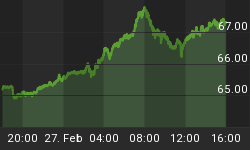Forty-one years ago on Sesame Street, Kermit the frog sang a plaintive song, "It's not easy being green."
In a gesture of solidarity, perhaps he should fax the lyrics to German Chancellor Angela Merkel, whose government is suddenly discovering the costs of weaning itself off nuclear energy.
In the wake of Fukushima, German Chancellor Angela Merkel announced on 30 May that Germany, the world's fourth-largest economy and Europe's biggest, would become the first industrialized nation to shut down all of its 17 nuclear power plants (NPPs) between 2015 and 2022, an extraordinary commitment, given that Germany's 17 NPPS Germany produce about 28 percent of the country's electricity and that the country's first NPP came online in 1969. The seven nuclear power plants immediately shut down after Fukushima include Biblis A and B, Neckarwestheim 1, Brunsbuettel, Isar 1, Unterweser and Philippsburg 1 and the offline reactor in Kruemmel. The remaining nine to be shut down by 2022 are Grafenrheinfeld in 2015, Gundremmingen B in 2017, Philippsburg II in 2019, Grohnde, Brokdorf, and Gundremmingen C in 2021, Isar II, Neckarwestheim II and Emsland in 2022.
Truly the end of an era.
Merkel added that her government's goal was to draw 35 percent of production from renewable energy sources by 2022.
While Fukushima proved the final impetus for the decision, Germany has long had one of the most anti-nuclear green movements in Europe. The Japanese meltdown was the final straw in convincing the electorate that Three Mile Island, Chernobyl and Fukushima, as well as hundreds of smaller incidents that the risks inherent in NPPs were in fact real and lethal, that nuclear-waste storage was a problem yet to be resolved and that renewable-alternative energy was the way of the future.
Not that the decision was unanimous. The German nuclear industry insisted that its shutdown would cause major damage to the country's industrial base and E.ON AG and Vattenfall Europe AG announced their intention to sue for billions of euros in compensation, with RWE AG and EnBW Energie Baden-Wuerttemberg AG expected to follow suit. As an immediate indication of their displeasure, two months ago Germany's four nuclear operators announced that they would stop paying into a government renewables fund, which was set up in September 2010 as compensation for the government agreeing to license nuclear plants for a longer period.
Adding to awakening consumer anxiety about "quality of life" issues, last month Germany's Federal Network Agency announced that it decided not to keep any NPPs as back-up in case of electricity shortfalls for the upcoming winter.
So, what to do?
Why, use Germany's massive euro reserves to buy in electricity from neighboring countries to ease shortfalls during the bumpy transitional period.
Neighbors only too glad to export electricity to der Vaterland include Austria, the Czech Republic and France.
And here's where it gets interesting, as the latter two nation's electrical exports are generated by... nuclear power.
Quite aside from the ideological contradictions inherent in the policy, it won't come cheap. In a report last July Deutsche Bank noted that because of the nuclear prohibition Germany will become a net importer of about 4 terawatt hours of power by the end of the year after exporting 14 terawatt hours in 2010.
In another sobering statistic from the Dena Energy Agency, a research institute partly owned by the German government, Germany will have to spend nearly $14.3 billion over the next decade to upgrade its electrical grid if the country is to stop using neighboring networks.
Speaking of neighboring networks, importing electricity from former communist Eastern European states presents an additional range of problems, as their elderly grids were built over 30 years ago solely to handle domestic demand, years before the countries joined the European power-trading system.
Not that the government hasn't been warned - in May national electricity-grid regulator Bundesnetzagentur said that Germany's unilateral decommissioning of its NPPs risked straining utility networks in at least seven neighboring countries.
According to the European Nuclear Society, as of January 2011 there were 195 nuclear plants in operation and under construction in Europe. No doubt all the operators of these NPPs will be watching the German experience weaning itself off its nuclear addition with great attention. It's not easy being green.
Source: http://oilprice.com/Alternative-Energy/Renewable-Energy/Germany-Its-Not-Easy-Being-Green.html
By. John C.K. Daly of Oil Price















